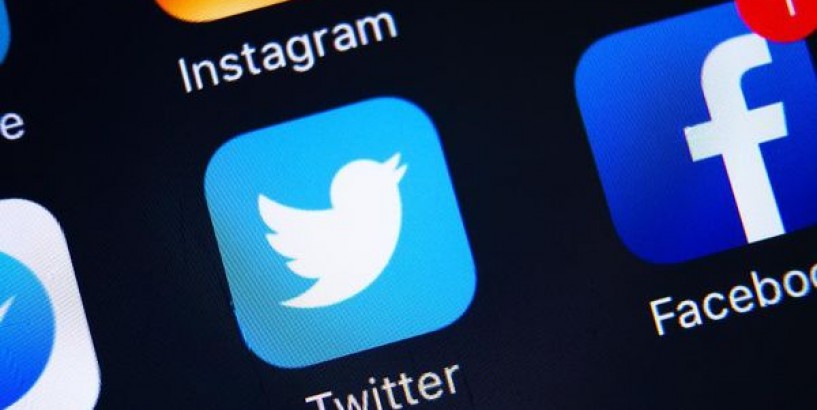And so the threats begin... Twenty-four hours after Facebook and Twitter cut down a massive disinformation campaign operated by the Chinese state against pro-democracy campaigners in Hong Kong, the first report has emerged from Asia of "repercussions" as China looks to get even. At stake are the billions in ad revenue generated from Chinese companies targeting overseas audiences. Related: Facebook and Twitter uncover huge Chinese State operation targeting Hong Kong protesters
The report in Wednesday's South China Morning Post , an outlet that is not state-controlled but has strong PRC insights, cited analysts claiming "advertising revenue the two platforms earn in the world’s second-largest economy could now be at risk as Chinese companies looking to expand overseas reassess the situation."
On Monday, I reported that China has been paying Twitter to run ads attacking the Hong Kong protesters—the language being used was highly-charged and drew parallels between the protesters and terrorists. It soon became clear that the same disinformation campaign was running on Facebook as well.
To their credit, both social media platforms acted quickly and forcefully.
Twitter acknowledged the "significant state-backed information operation," on its platform, "focused on the situation in Hong Kong," suspending 936 accounts "from within the People’s Republic of China (PRC)." The accounts were found to be promoting "political discord" and "undermining the legitimacy" of the protest movement. Twitter went as far as to say "we have reliable evidence to support that this is a coordinated state-backed operation."
Facebook also removed multiple pages and accounts, reporting that "the individuals behind this campaign engaged in a number of deceptive tactics, including the use of fake accounts—frequently posting about local political news and issues including the ongoing protests in Hong Kong. Although the people behind this activity attempted to conceal their identities," the platform said in its disclosure, "our investigation found links to individuals associated with the Chinese government."
Related: China pays Twitter to promote propaganda attacks on Hong Kong protesters
And so to the consequences. The SCMP reported Liu Guohong of the China Development Institute warning that "although marketing campaigns on Facebook and Twitter primarily target an overseas audience, Chinese companies that buy ads may have to reconsider whether the national interest is now at stake—as such, the account suspensions may have some adverse impact on revenue the two earn in China."
Again, look for the insight. The China Development Institute (CDI) claims to be an "independent think tank," but one that was set up under a Government-backed pilot project and which conducts research "commissioned by Chinese governments at all governance levels and businesses from home and abroad."
Facebook has more to lose here, and some industry analysts estimate that the company could generate as much as $5 billion from "China-based advertisers." The social media giant's most recent annual report said that "we generate meaningful revenue from a limited number of resellers representing advertisers based in China."
A precedent has been set now, and the two U.S. social media platforms will find it difficult to dial back. On Tuesday, BuzzFeed News reported that China's state media is placing Facebook ads this week "designed to cast doubt on human rights violations occurring under the government’s mass incarceration of Muslim minorities in the country’s northwest Xinjiang region."
Advertising by state media outlets has now been banned on Twitter as part of this week's China crackdown—the pressure will be on others to take the same line, given the focus on election integrity and population interference.
This week has illustrated the dilemma that global tech outlets face when dealing with China—a market that's too big to ignore but seemingly too dangerous to engage. Google is on the back foot once again after the latest U.S. Commerce Department announcement signaled again that it may have to sever links with Huawei, and FedEx remains under investigation for failing to deliver Huawei packages and, more recently, allegedly dispatching a weapon from the U.S. to China.
In May, China announced its own version of the U.S. blacklist, with a "non-reliable entity list" that would target companies for their discriminatory action against Chinese entities. According to China's Commerce Ministry, "foreign enterprises, organizations or individuals that do not comply with market rules, deviate from a contract’s spirit or impose blockades or stop supplies to Chinese enterprises for non-commercial purposes, and seriously damage the legitimate rights and interests of Chinese enterprises, will be included on a list of ‘unreliable entities'."
The example with Facebook and Twitter could easily be argued to come under the umbrella of the restrictions, with the outlets targeted being China's state media outlets. The fake disinformation accounts are harder to leverage, not that China needs to make its case in court.
The ongoing battle between the U.S. and China over big tech follows a common theme—with threats from Chinese media outlets intended to give companies in the U.S. pause for thought as to the implications of their actions, and the hope they will lobby Washington in China's favor. What's interesting here, is that the report has not emerged in the state media outlets the China Daily or Global Times .
For now, state media is accusing the social media platforms of conducting their own form of censorship, leading to a "backlash" from account holders. "Users complained the move was the latest evidence of the platforms' vulnerability to Western bias against China," the state-controlled Global Times reported , "while analysts noted that social media platforms should perform their social responsibility of ensuring freedom of speech and not fall victim to Western political correctness standards."
It has been an interesting week in the ongoing campaign against state-controlled influence peddling on social media. The next few weeks, though, will be more interesting as the pressure mounts for the changes to stick and we see what consequences follow.









